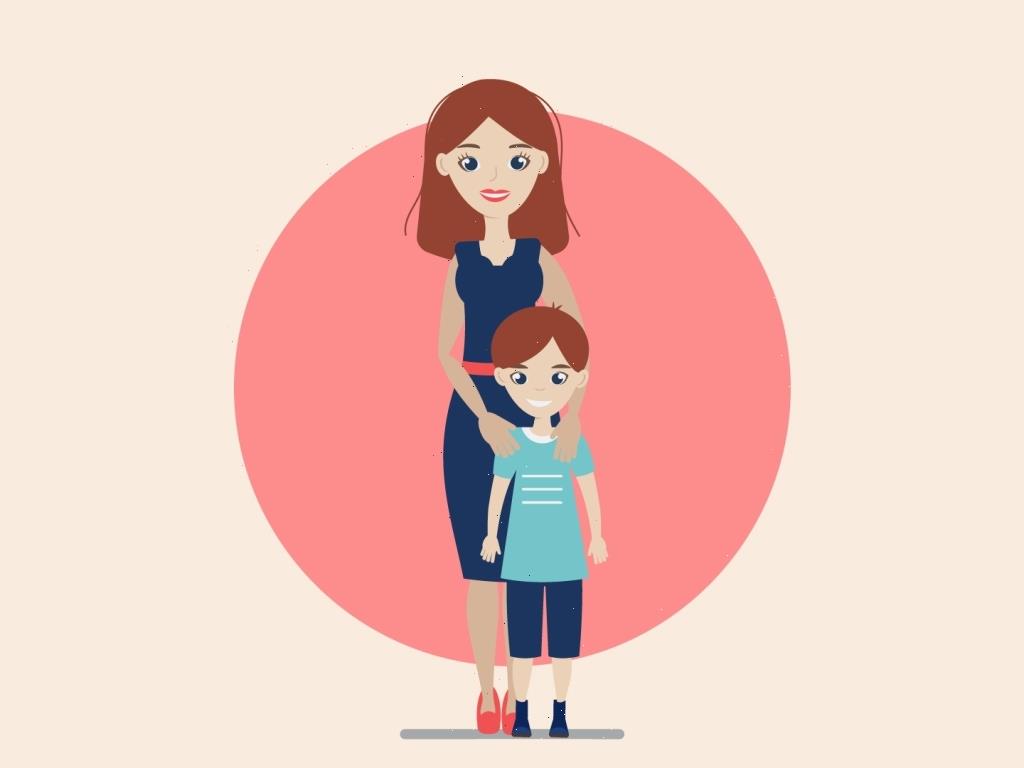Related story
How to Navigate the Loneliness of Motherhood
As a kid, I was never going to win any class participation awards. When the teacher asked me “to use my words,” I had none. In social situations, my shy brain freezes, and the words that once lived inside my head disappear. Initial conversations are more awkward than my husband trying to fold our fitted sheets — especially when my go-to icebreaker is species of fish or Star Trek characters, both of which sound remarkably similar. As a young adult, I began to appreciate my quiet nature, but when I became a mother, I found talking to all the other moms next-level awkward.
“Mom, go inside,” my then-3-year-old son said as I stood hesitantly in the doorway of the Mommy and Me class. This was a hard feat with an excited threenager tugging at my hand. Still, I waited and took a moment to gather my courage. My recent experiences of inserting myself into the mommy conversation hadn’t gone smoothly. Each time I joined a group of moms talking on the playground or strolling through the neighborhood, my brain froze and the conversation was clumsy. That’s when I’d fake hearing my son call for me so I could leave the group before it got too weird.
Following my kid into the play area, then from the obstacle course to the ball pit, I pulled out my shy bag o’tricks. I got ready to ask moms questions about their kids or this class in order to make fast friends. This move generally helped to lessen the amount of talking on my end, but when I saw my son intently watching me, big nerves took over. I heard myself say super awkward things like: “Do you know how often they clean their balls?” Moms either smiled politely or gave me one-word answers. Clearly, my technique wasn’t working and I excused myself.
From my spot in the corner, I could see the other moms talking effortlessly with one another. I wondered why this was so hard for me. Mostly, though, I struggled with wanting to change my shy self so my son could witness a more outgoing mother.
I’d read all the articles and all the studies that told me that as my kid’s parent, I’d be his most influential role model. My actions now would affect his entire life later — his outlook, his behavior, and, yep, how he functioned in social situations. I didn’t want him to experience my same awkward brain freeze. I needed to find a way to model the best social skills, so I decided it was time to learn to be an extrovert. I made a deal with myself that when my kid started preschool, I’d find a way to inhabit an outgoing personality. Those parents and my son would meet a new and improved extroverted me.
On my son’s first day of pre-K, I tried out my new social butterfly wings. With my son looking on, I pulled out a couple of pre-planned questions. Looking at the woman standing next to me, I opened with the truth: “How was your morning? I’m not sure if I’m more nervous or my son.” To my surprise, the honesty worked, and a lovely exchange started — for a hot minute. Like all of my attempts that morning, eventually my conversation came to a screeching halt. I could feel my heart beating faster, and letting my tension lead me, I filled the space by nervously rambling about school … and schools of fish.
This was my life for the first months of preschool. I made awkward conversation and tried to be the outgoing mom I thought my son needed. With each trip to school, I could feel my stress increase and my stomach turn sour, but I pressed on because there had to a way for me to model excellent social skills. I’d do anything for my son, and if that meant dealing with the strain of stepping into a personality that wasn’t honestly mine, I could do this. Until it occurred to me that maybe that’s why I shouldn’t do this.
Forcing myself to speak with a mom during an after-school pickup, my sweaty anxiety increased, so much so that my son’s hand slipped out of my own. When I glanced down to reclaim his tiny hand, our eyes locked and I instantly wondered what he saw. Did he notice all my stress and worry happening behind the scenes? Could he feel my nervousness rise as I continued to talk beyond my comfort zone? Was I was modeling stress and anxiety from trying to be someone I was not? I decided it was time to be a different type of model.
Motherhood has definitely asked me to leave my comfort zone more than any other life phase, but when it came to changing my shy personality, well … I had to give that request a hard pass. I can see now that my shyness holds benefits. My personality trait shows my kid how emotional resilience works in real-time. My kiddo sees how I can honor my quiet nature and work with it to adapt, persevere, or take a mini-break to regroup. By being true to myself, I’m showing my kid how to be comfortable in his own skin. And that’s a much more honest and interesting conversation to build on than the lifespan of a cuttlefish.
Source: Read Full Article

